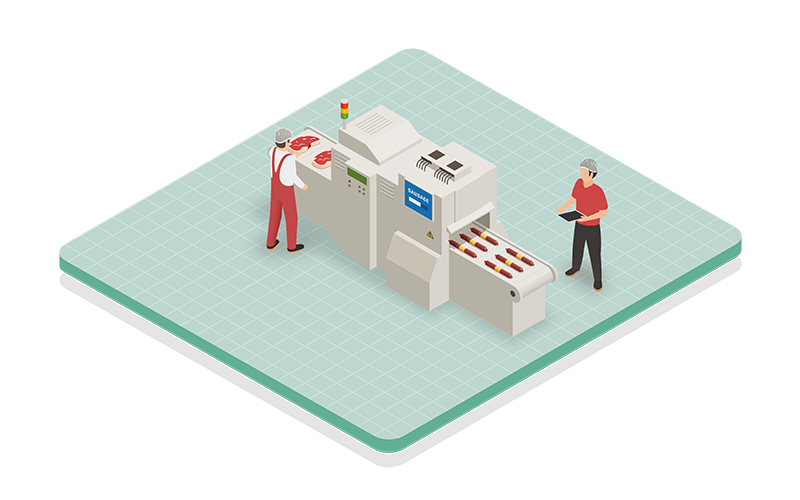Air quality in meat processing facilities is often the forgotten ingredient within their facility. Did you know that Meat processing factories are susceptible to the spread of airborne viruses and microbes? The temperature and humidity requirements along with the production processes lend to the survival of airborne microbes and viruses. This means that the airborne viruses can survive longer in the air than in other facilities.

Your HVAC system is key to ensuring enough supply air is introduced into your facility. Ensuring the air that is introduced and clean to the standards required is essential so that there is reduced particle levels in your facility. REHVA recommends that most facilities should utilise ePM1 air filters as your final filter for supply air, with ePM1 60% filters for 2 stage filtration and ePM1 80% for single stage filtration. Other HVAC checks and considerations should be made. Download our handy HVAC compliance checklist to learn more.
Increased air changes can help dilute and remove the number of airborne microbes. There are challenges associated with increasing air changes, these challenges focus on how many air changes are sufficient for your facility. This can be based on a number of factors including - the size of your production facility, the number of workers within the facility, and even the internal processes that affect particulate levels. Another challenge is the equipment. Often HVAC systems are not designed to achieve increased levels of air changes as well as improved filter efficiency. When these improvements are not available upgrading the system can be very expensive. Using mobile HEPA air cleaners can be used to supplement your existing HVAC system and achieve the required air changes for your meat processing plant.
The fixed aspects of production are key reasons why viruses can spread more easily within meat processing facilities. Often the different production processes can create excess particulates in the air, this gives airborne viruses optimal conditions to survive longer in the air.
To reduce this risk, creating clean air zones within your production process is key.
Using air cleaners and fabric ducts, your meat processing facility can create positive downflow areas above your workstations for improved protection of your employees.

All our products are tested and certified to industry standards. All air cleaners come equipped with HEPA filters tested and certified to EN1822:2019 standards. All HVAC filters are tested and certified according to ISO 16890